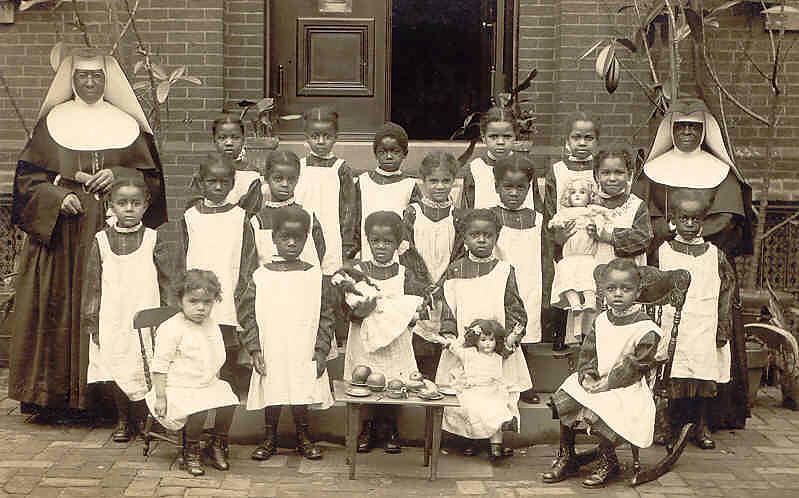November 13, 2013
November is Black Catholic History Month. We often forget how difficult it was to be a black Catholic in the Jim Crow days. I was recently reminded of the racist attitudes of many Catholics even among some communities of religious women. Shannen Dee Williams is the 2013-2014 Postdoctoral Fellow in African-American studies at Case Western Reserve University in Cleveland, Ohio. In the fall of 2014, she will join the faculty of the University of Tennessee at Knoxville as an assistant professor of United States and African-American history.
Her research shows a clear racist attitude in many religious communities throughout the United States. She ran into Elaine Clyburn at a lecture in Memphis, Tenn. I was, while I was in Memphis, Elaine Clyburn’s pastor. But I never knew this part of her story. I knew that she was an associate of the Sisters of Saint Joseph of Erie, but I never understood how much reconciliation was necessary for her to achieve it.
Recently Elaine told Shannen after a lecture the young researcher had given, “Young lady, you just told my story. In 1952, I was denied admission to the Sisters of Saint Joseph [of Carondelet] in Buffalo, New York solely on the basis of race. I was one of the broken hearts that you mentioned.”
Gratefully, policies such as the one Elaine faced no longer are a part of religious communities. That racist attitudes exist in communities just as they do in society cannot be denied because we cannot tell exactly how individuals are going to react in given racial situations. However, the quality of life for black women in largely white women’s communities has improved. There are also many communities of religious women who are predominantly black, for example, the Oblate Sisters of Providence of Baltimore.
Shannen Williams notes: “Despite the proliferation of scholarship on U.S. Catholic sisters in the last three decades, race remains widely under-utilized as a category of analysis in the history of female religious life. Moreover, the long and largely unsuccessful African-American struggle to integrate white Catholic sisterhoods remains one of the most under-researched and least-reported on topics in American religious history.” I’m quite sure Shannen Williams will be adding significantly to that research.
Meanwhile, we are called to look at our own attitudes toward black people in our midst. Black Catholics are a proud people who love their faith and have faced amazing obstacles in being accepted by our Church. We cannot allow old attitudes to dominate our way of living with and among those who like us are a part of the people of God. African Americans may have black skin, but they are just like each one of us who happen to have white or brown or red or yellow skin. It is not our skin that defines us. It is our character and our love for Jesus that defines us.
